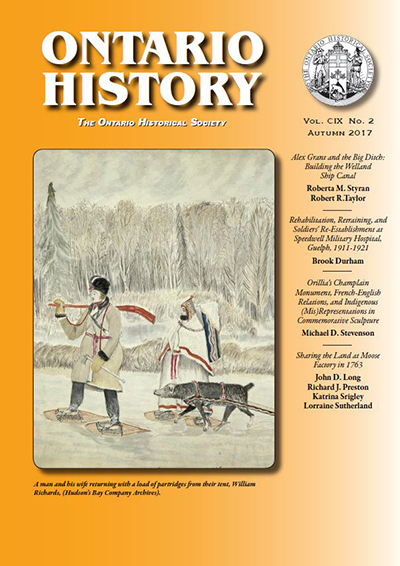Dr. John Long’s work featured in new, posthumous article
Professor Emeritus at Nipissing University, the late Dr. John Long’s work is featured in a new article, Sharing the Land at Moose Factory in 1763, in the journal Ontario History.
The article is co-written with Dr. Katrina Srigley, associate professor of History at NU; Dr. Richard Preston, Professor Emeritus of Anthropology at McMaster University; and Lorraine Sutherland, a master of history graduate from NU.
In an editorial note, Srigley, Preseton and Sutherland wrote: “In February 2016, we lost John Long, our dear friend, colleague, and mentor. In the last months of his life, John tasked us with finalizing this article, certain our shared interests, and diverse perspectives, knowledge and skills would strengthen it and ensure its completion. We were heartbroken and honoured to do this work together. As always, we learned from John during this last collaboration together. Through this article, and his other award-winning publications, we know readers will continue to benefit from his knowledge and understanding of Mushkegowuk territory developed over decades spent learning with, sharing and advocating alongside the Mushkegowuk. Mushkegowuk means the people in the language of the territory.”
Here is an abstract of the article:
In the 18th century the Indigenous peoples of the James Bay region shared land near the coast, a few resources, and furs from a vast hinterland with European newcomers. The Royal Proclamation of 1763 excluded Rupert’s Land – an appropriate decision for it was quite distinct from lands in the south where settlers were acquiring Indigenous land on the fee simple real estate model. What were the James Bay indigenous people’s conditions for sharing their land? It was arguably their principles, and not King George’s edict, that characterized the year 1763 at Moose Fort (Moose Factory). This paper draws on Hudson’s Bay Co. records to examine what was being shared with the newcomers in this northern region. Unlike in the southern regions, the newcomers had no intention of displacing Indigenous peoples. A modest sharing of land and a generous sharing of food and fur resources, on terms congenial to its first inhabitants, characterizes 1763 in this northern region.
Ontario History is a peer-reviewed scholarly journal that is published bi-annually by the Ontario Historical Society. Ontario's premier history journal, it discusses a wide variety of topics relating to our province's past.

